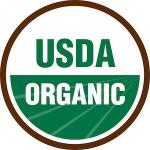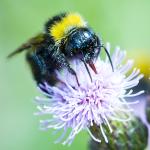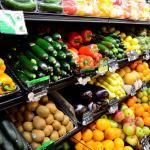Some 8,000 years ago, our ancestors struck a Faustian bargain with a creature wandering about in the neighborhood; we feed you, you feed us – it seems, at the time, to be a good collaboration.
agriculture
Organic food has been in the news a lot, lately.
Comedy is an excellent tool for pointing out the absurdities of society.
According to legend, organic farms are the way Mother Nature meant for us to live.
For roughly the last two years, the media has been warning us that climate change is threatening the world's supply of coffee beans.
A new study in Science Advances claims that more carbon dioxide in the atmosphere will cause food to become less nutritious. That very well might be true.
Like GMOs and vaccines, misinformation is rife on the topic of bees.
When studies are published in major journals one assumes that study adds value to scientific knowledge - sadly this is not always the case.
For some reason, humans enjoy making predictions of death and destruction. From politicians to fanatical religious leaders, there is a lot of money to be made telling people that Earth is toast.
Last year, Bayer announced its intention to purchase (in cash!) Monsanto.












